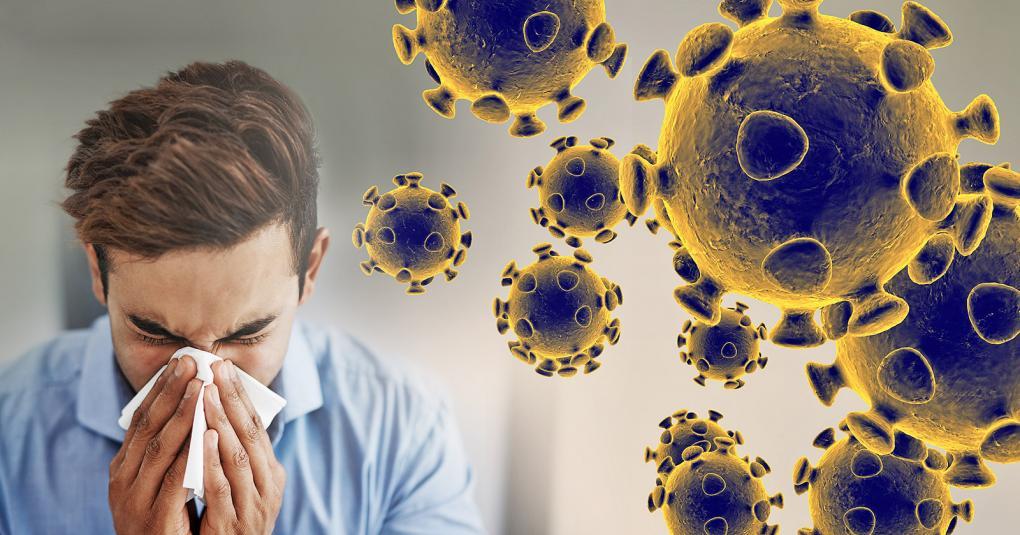VACCINES & PREVENTION There is currently no vaccine to prevent COVID-19. The best way to prevent infection is to avoid being exposed to the virus.
Face masks for the general public are not recommended to protect from infection, as there is no evidence of benefit from their use outside healthcare environments.
People who have returned from Hubei Province, including Wuhan, in the last 14 days should self-isolate whether they have symptoms or not. This includes avoiding attending an education setting or work until 14 days after they leave Hubei Province.
At present, FCO advises against all travel to Hubei Province due to the ongoing novel COVID-19 outbreak. The FCO also advises against all but essential travel to the rest of mainland China (not including Hong Kong and Macao).
Under most circumstances, the amount of infectious virus on any contaminated surfaces is likely to have decreased significantly by 72 hours. It is know that similar viruses are transferred to and by people’s hands. Therefore, regular hand hygiene and cleaning of frequently touched surfaces will help to reduce the risk of infection.
Employees are not recommended to wear facemasks (also known as surgical masks or respirators) to protect against the virus. Facemasks are only recommended to be worn by symptomatic individuals (advised by a healthcare worker) to reduce the risk of transmitting the infection to other people. WHAT CAN WE DO ? Public Health England recommends that the best way to reduce any risk of infection is good hygiene and avoiding direct or close contact (closer than 2 metres) with any potentially infected person.
If an employee becomes unwell in the workplace and has travelled to China or any other of the affected countries, the unwell person should be removed to an area which is at least 2 metres away from other people. If possible find a room or area where they can be isolated behind a closed door, such as a staff office. If it is possible to open a window, do so for ventilation.
The individual who is unwell should call NHS 111 from their mobile, or 999 if an emergency (if they are seriously ill or injured or their life is at risk) and explain which country they have returned from in the last 14 days and outline their current symptoms.
Whilst they wait for advice from NHS 111 or an ambulance to arrive, they should remain at least 2 metres from other people. They should avoid touching people, surfaces and objects and be advised to cover their mouth and nose with a disposable tissue when they cough or sneeze and put the tissue in a bag or pocket then throw the tissue in the bin. If they don’t have any tissues available, they should cough and sneeze into the crook of their elbow.
If they need to go to the bathroom whilst waiting for medical assistance, they should use a separate bathroom if available.
For contacts of a suspected case in the workplace, no restrictions or special control measures are required while laboratory test results for COVID19 are awaited. In particular, there is no need to close the workplace or send other staff home at this point. Most possible cases turn out to be negative. Therefore, until the outcome of test results is known there is no action that the workplace needs to take. |
Closure of the workplace is not recommended.
The management team of the office or workplace will be contacted by the PHE local Health Protection Team to discuss the case, identify people who have been in contact with them and advise on any actions or precautions that should be taken.
A risk assessment of each setting will be undertaken by the Health Protection Team with the lead responsible person. Advice on the management of staff and members of the public will be based on this assessment.
The Health Protection Team will also be in contact with the case directly to advise on isolation and identifying other contacts and will be in touch with any contacts of the case to provide them with appropriate advice. Advice on cleaning of communal areas such as offices or toilets will be given by the Health Protection Team.
By law, medical evidence is not required for the first 7 days of sickness. After 7 days, it is for the employer to determine what evidence they require, if any, from the employee. This does not need to be fit note (Med 3 form) issued by a GP or other doctor.
Your employee will be advised to isolate themselves and not to work in contact with other people by NHS 111 or PHE if they are a carrier of, or have been in contact with, an infectious or contagious disease, such as COVID-19.
Currently, there are minimal cases outside the listed areas and therefore the likelihood of an individual coming into contact with a confirmed case is extremely low.
These staff can continue to attend work unless they have been informed that they have had contact with a confirmed case of COVID-19. Andre Cross AXGE
|
|
|




